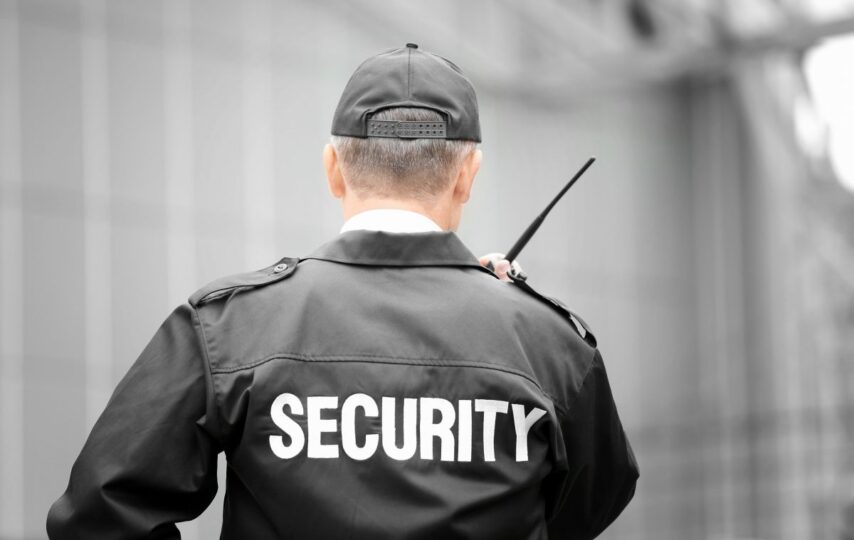If you’re currently employed as a security officer or have been in the past, you may be looking to take the plunge into policing to progress your career.
Policing is a natural progression route for security officers, but how do you get started?
The good news is that you’ll likely have a lot of the skills you need to work in policing already. There are plenty of practical, soft, and mental skills needed to be a successful police officer, and thankfully you’ve already got most of them down.
In addition to your experience and skills, you may find that getting a criminology degree with policing really adds something to your resume that sets you apart from the rest of the police applicants.
This post will highlight all the skills you need to transition from being a security officer to a police officer. With all this knowledge, you should then be able to focus on developing any skills you haven’t got or taking any qualifications you need to make you a great candidate.
What skills do I need to become a police officer?
Practical skills
An essential skill for both police and security officers is patrolling. The only difference is that police patrol a larger area while security typically patrols premises like retail outlets or offices.
In order to patrol, individuals need a calm, cool and collected manner so that they can both handle general inquiries from the public or act quickly in a crime.
Like police officers, those working in security will likely have taken part in surveillance training to help them deter and detect crime. This training will give you a step up on your way to a career in policing.
As part of your surveillance training, you’ll learn how to collect evidence unobtrusively and how to use advanced technology to aid your surveillance. Both of these skills are integral to the policing profession. If you didn’t have this training during your time as a security officer, it is certainly worth looking into getting this under your belt.
Lawful apprehension is another core skill for both job roles. Without it, you could see yourself getting into serious trouble and potentially losing your job. Apprehension can be a complex thing; you need to be able to show authority and be firm without causing injury.
Depending on the type of patrol work you’ve completed as a security officer, you may need additional training in apprehension before applying to work for the police so that you have a little more confidence in the process. This type of practical skill is taught through a Criminology with Policing degree and will give you all the bases you need.
Another core physical skill for policing and security officers is fitness. Your role may require you to chase a suspect, meaning you’ll need to be fit enough to run while carrying all your gear. When attending police school, you’ll be required to pass an initial fitness test. If you’re keen to progress, you might want to consider training in your spare time. Start jogging a few times a week and slowly increase the distance or load you’re carrying.
Even with a degree in place, you’ll still need to pass the Physical Abilities Requirement Evaluation (PARE), which will determine if you physically have what it takes to work as a police officer. The evaluation will look at muscular strength, endurance, and your cardiovascular system.
Soft Skills
Being able to adapt quickly is a soft skill you’ll need for policing. As part of this adaptability, you’ll need to be able to stay calm and focused during stressful situations or while working under pressure.
In both security a policing, there is an essence of unpredictability, meaning you need to be prepared for just about anything.
You’ll also need a high level of emotional intelligence. This will help to defuse dangerous situations – either for you, other citizens, or suspects. Being able to pay attention to what you need to do and the best way to go about it will give you a much better chance of finishing a task with a positive outcome.
Seeking de-escalation strategy training is useful for your progression. It’s this sort of thing that you’ll learn on a degree course before heading to police school. You’ll learn how to delay or prevent a situation from becoming extreme, how to provide backup for other officers de-escalating a situation, and how to keep the community safe during the uncertainty.
Being respectful and maintaining a level of professionalism is another core soft skill you will need for policing that you’ll likely have learned from security. As you’ll be first and foremost serving the community, you need to refine your active listening skills, have good written communication, and be able to identify (or use) non-verbal cues.
Mental Skills
Similar to soft skills, there are many mental skills that can be developed to help you succeed in your new career as a police officer.
The first is observation. Being able to read body language – both in person and on surveillance footage – is incredibly important for CSI roles so that evidence can be collected, processed, and guarded correctly.
Another is critical thinking – something that can certainly be learned through a criminology degree. Officers need to be able to think and analyze key information on the spot so that they can make the right, informed decisions with the safety of the community prioritized. This is particularly important if you’re working as a detective, as you will need to be able to assess and map out potential leads.
A key focus for police officers is, of course, upholding the law. By doing so, you can maintain a fair society – which is at the core of all police work. That’s why police school and taking a degree in policing are so important for your career journey. With so many laws and processes to remember, it would be incredibly difficult to do the role without the full training.
Final Thoughts
Developing these mental, soft, and practical skills is essential for becoming a police officer. While a lot are transferrable from security work, policing often requires a higher level of critical thinking and fitness. Take a look at the potential training on offer, as well as online degree courses that could help you gain these skills while you’re still working. That way, you’ll have both academics and experience in the field you need in order to succeed.



